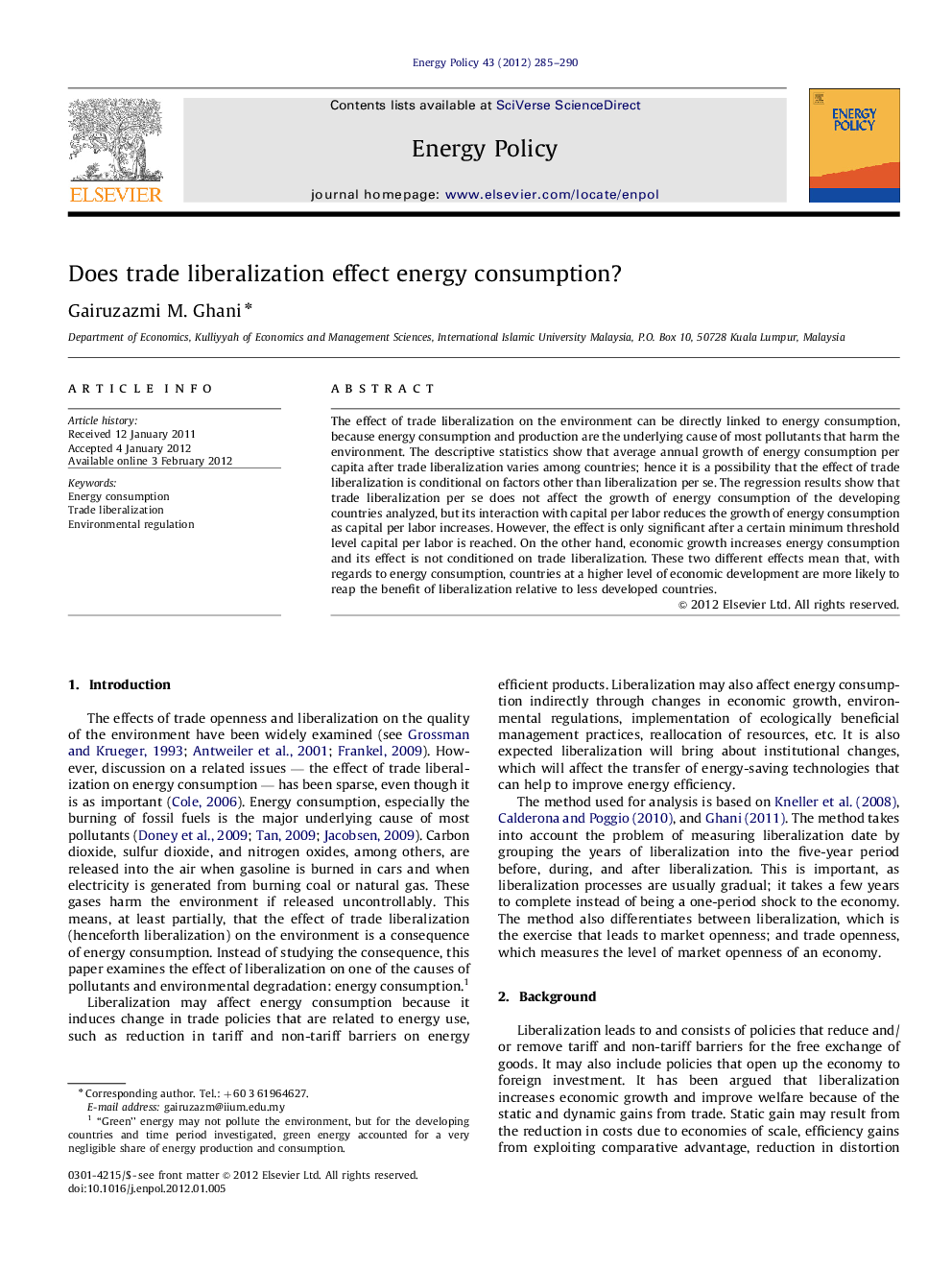| Article ID | Journal | Published Year | Pages | File Type |
|---|---|---|---|---|
| 994860 | Energy Policy | 2012 | 6 Pages |
The effect of trade liberalization on the environment can be directly linked to energy consumption, because energy consumption and production are the underlying cause of most pollutants that harm the environment. The descriptive statistics show that average annual growth of energy consumption per capita after trade liberalization varies among countries; hence it is a possibility that the effect of trade liberalization is conditional on factors other than liberalization per se. The regression results show that trade liberalization per se does not affect the growth of energy consumption of the developing countries analyzed, but its interaction with capital per labor reduces the growth of energy consumption as capital per labor increases. However, the effect is only significant after a certain minimum threshold level capital per labor is reached. On the other hand, economic growth increases energy consumption and its effect is not conditioned on trade liberalization. These two different effects mean that, with regards to energy consumption, countries at a higher level of economic development are more likely to reap the benefit of liberalization relative to less developed countries.
Research highlights► This paper examines the effect of trade liberalization on energy consumption. ► Developed countries are more likely to reap the benefit of trade liberalization. ► Growth of energy consumption after trade liberalization varies among countries. ► Interaction of capital per labor with liberalization reduces energy consumption.
